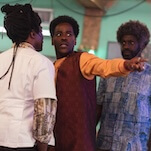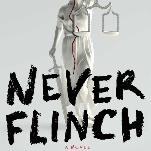Crisis

Early in The Originators, a special feature included on the new DVD release of Primary, cinéma vérité pioneer Robert Drew maps out his vision for a "whole new journalism" that would entail "theater without actors," "plays without playwrights," and "reporting without summary and opinion." Drew then explains that practitioners of what would come to be known as cinéma vérité need a stunning combination of prescience, insight, chutzpah, analysis, drive, and artistry. That's a tall order, but in Primary and Crisis, two landmark Drew documentaries recently released on generously supplemented DVDs, the filmmaker backs up his lofty rhetoric. Of course, it helps that his collaborators include future documentary legends Albert Maysles and D.A. Pennebaker. It also helps that Primary centers on an election featuring John F. Kennedy, arguably the most charismatic and photogenic American politician of all time. Kennedy's chief foe in the Wisconsin primary documented by Drew and company is Hubert Humphrey, and the two men provide a compelling study in contrasts. A Midwestern political lifer most at home working rural crowds and farmers, Humphrey looks and talks like a cross between Bob Hope and Mr. Magoo, with a hint of Willy Loman-esque desperation thrown in. Kennedy, meanwhile, exudes effortless charisma and magnetism. He's treated more like a bobbysoxer icon than a politician; nobody faints in his presence here, but plenty seem on the verge. Thanks to advances in filmmaking technology, Primary's revolutionary handheld cameras and live sound plunge audiences directly into the action, offering a form of cinema as unpredictable and spontaneous as life itself. Primary affords the exhilaration of watching two riveting forms of history, politics and cinema, in the making. Less revolutionary but even more compelling is 1963's Crisis. Reuniting Drew and Pennebaker with Kennedy after his ascent to the presidency, Crisis chronicles, with thrilling intimacy, the behind-the-scenes maneuvering of the White House as it deals with good-old-boy segregationist Gov. George Wallace, who insists on physically preventing the integration of the University Of Alabama by two black students. Kennedy radiates youth and vigor in Primary, but in Crisis, he looks as if the weight of the world rests on his shoulders, which isn't far from the truth. Nothing less than the political future of the South seems to hang in the balance as Kennedy, his attorney-general brother Robert, and Robert's deputy try to take a stand for tolerance and integration without humiliating the politically powerful governor or losing the South altogether. Much of Crisis is almost unbearably tense, but wonderful moments of humor alleviate that tension, as when a call between Robert Kennedy and his deputy is hijacked by the former's oblivious pre-pubescent daughter, who grabs the phone and engages in some childish happy talk with his bemused deputy. As Drew and collaborator Richard Leacock note on the audio commentary, that moment would seem hopelessly farfetched in a fiction film, but it has the benefit of being true. A fascinating sociological document, Crisis provides an unforgettable profile in courage in the process. The Crisis DVD also includes the award-winning short film Faces Of November, a haunting piece of pure cinema that captures the grief of a nation by documenting the faces and bodies of the mourners at President Kennedy's funeral.







































